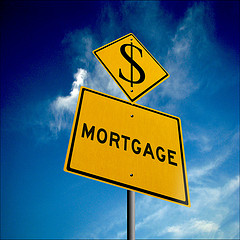Putting in the Effort for a Mortgage When Self-Employed
 Anybody running his or her own business knows obtaining financing for anything is a bit more of a hassle compared to someone with a job. It's difficult to get a mortgage for just about anybody, but the self-employed have to go through quite a bit more.
Anybody running his or her own business knows obtaining financing for anything is a bit more of a hassle compared to someone with a job. It's difficult to get a mortgage for just about anybody, but the self-employed have to go through quite a bit more.
The Face of Self-Employment in Calgary
After the economic downturn, more people started their own businesses and decided this was better than returning to the workforce and collecting a regular paycheck. The only issue, these same people are ready to upgrade their homes or finally purchase a home. They are quickly discovering how hard it can be to obtain a mortgage when you work for yourself.
With so many self-employed individuals applying for mortgages, lenders have been forced to take a second look at providing mortgages for this crowd. For the consumer, it's necessary to be prepared for what lies ahead with a self-employed mortgage.
Research in Advance to Ensure You're Qualified
You want to start by doing your homework and understanding the type of financing you're after. A little research about the mortgage industry will make it much easier as you move forward.
After doing your research you will need to gather all the paperwork you need, which varies, depending on your business situation. A face-to-face meeting is necessary and you want to be prepared for anything they throw your way.
Of course, it's a good idea to shop around and meet with more than just one lender. Make sure you have proof of your income when you arrive or you will need to make a trip home to get the right documentation.
Those using any type of creative accounting methods to keep their tax payment low may need to adjust these strategies. Even though many of these practices are perfectly legal, using creative accounting can make it difficult to prove your income and qualify for a mortgage.
Save a High Down Payment and Ensure Your Credit is Good
Self-employed individuals seeking mortgages will definitely want to ensure they have a higher credit score than just ‘good.’ While most Canadian A-lenders require a minimum credit score of 680 to qualify, those who work for themselves can expect to be held to a higher standard. Shoot for a score of 750 or higher, which is considered excellent credit and deems you a lower risk for lenders. You will also be more likely to get a much better rate with a high score and save hundreds or thousands over the years on interest.
Concerning down payments, it is worth noting that in recent years the Canadian Mortgage Housing Corporation decided to discontinue offering mortgages for the self-employed without a form of third-party validation. This can provide issues for some Canadians who don’t declare their full income, which will make private lenders the best option. However, those seeking traditional mortgages will need at least 20 percent down with excellent credit, but it is wise to be prepared with at least 30 percent or more.
Follow these tips and you will be better prepared for getting a mortgage for your home.

